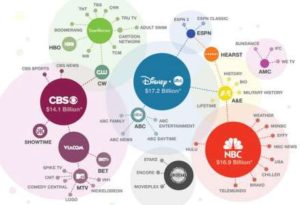Neoliberal v Neoclassical economics – what’s the difference? – Claire Connelly
Neoliberalism and neo-classical economics are often terms that are used interchangeably by various economists and financial writers, but actually, there are important differences between the two. We’ve had some requests from readers to make that distinction more obvious, so here goes…
Neo-classical economic theory puts ‘man’ as a rational human being at the heart of the economic system, extrapolating the functions of the economy based on the optimised behaviour of rational, well-informed individuals trad- ing with one in another in what is effectively a barter system (which as I’m sure we all know by now, never actually existed). It is based on a general equilibrium model pioneered by late 19th century economist Leon Walras, of the Lausanne School. Ironically, neoclassical economics guarantees full employment because it models a system with no frictions or inconveniences like trade unions, minimum wage laws or imperfect information. Also false.
It also guarantees that society will find an optimal allocation of resources on its own, so long as markets are competitive, and there are no externalities, like pollution, which go unaccounted for.
 Neoclassicists are concerned about monopoly power, neoliberals are not. Neoclassicists believe it merits government intervention and regulation. Neoliberals, do not. It is possible to be a neoclassical without being a neoliberal.
Neoclassicists are concerned about monopoly power, neoliberals are not. Neoclassicists believe it merits government intervention and regulation. Neoliberals, do not. It is possible to be a neoclassical without being a neoliberal.
The most important thing to understand is that neoliberalism is a post-war political movement that grew out of the Mont Pelerin Society, a thought collective that formed a consensus not to put the market at the centre of the state, but to take it over completely. Its entire objective is to co-opt economics and subvert the public interest to suit the needs of powerful capitalist institutions and the politicians, economists, financiers, philosophers, bankers, think-tanks and media organisations that support them.
Neoliberalism is associated with laissez-faire economic liberalism and was pioneered by the economists Milton Friedman & Friedrich Hayeck, but as the economic historian, Philip Mirowski points out, this is a deliberate deception designed to trick people into thinking it is concerned about market equilibrium.
It is the doctrine by which white collar crime has been allowed to prosper unprosecuted while governments of wealthy nations like the US and UK have abdicated their responsibility for employment, health care, education and the general well-being of the popul- ations they are supposedly elected to serve. In their minds, government exists only to maintain property rights, defend capitalists and maintain price stability, (which apparently doesn’t count as intervention when it works in the favour of the wealthy).
Unlike neoclassicists and neoliberals, heterodox economists and other post- Keynesians, reject the notion of general equilibrium. They believe the economy evolves through non-equilibrium states over time. Heterodox economists believe governments need to introduce instability-thwarting mechanisms to stabilise the economy, maintain full employment, and retain social equity.
“Free-market economists may want you to believe that the correct boundaries of the market can be scientifically determined, but this is incorrect,” writes institutional economist, Ha-Joon Chang, in his book 23 Things They Don’t Tell You About Capitalism.
“If the boundaries of what you are studying cannot be scientifically determined, what you are doing is not a science,” writes the Cambridge University economist.
“Recognising that the boundaries of the market are ambiguous and cannot be determined in an objective way lets us realise that economics is not a science like physics or chemistry, but a political exercise.”
In other words, a strong economy requires constant time, attention, assessment, and when it is called for, intervention. The rules will not always be the same, nor the causes. But it helps to start with an understanding of the role and purpose of government spending and taxation.
Source: Renegade Inc, with permission. https://renegadeinc.com/neoliberal-v-neoclassical-economics-whats-difference/
 Claire Connelly is editor-in-chief of Renegade Inc., an award-winning freelance journalist, speaker, and the founder of Hello Humans. https://claireconnelly.com.au/hello-humans/
Claire Connelly is editor-in-chief of Renegade Inc., an award-winning freelance journalist, speaker, and the founder of Hello Humans. https://claireconnelly.com.au/hello-humans/































